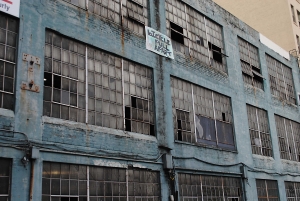

JUST when the SCO case was coming to its very end, we were seeing a rise in patent attacks on Linux, not just copyright attacks. It was also when Linux became a leader in mobile platforms that the attacks truly soared, just as the attack from SCO started when GNU/Linux had gained rapidly on servers. The timing made sense because if someone claims 'damages' and demands royalties, it is reasonable to make sure the return is greater than litigation expenses.
SCO showed that convoluted contract, IP and other courtroom claims make for long, convoluted courtroom processes. Considering the SCO case in its totality, it seems the more the company relied on legal means to compete or limit other competitors, the further it strayed from users, consumers and its core business.
"But we must not lose sight of the constant attacks on mobile Linux."Red Hat's Open Source site features an article by Keith Bergelt and it focuses on the mobile patent wars that affect Linux. There are several platforms affected by this and they include MeeGo and WebOS, both of which were weakened recently. Patents had a little to do with it, based on numerous reports. "RIM Patents Rotating Keyboard Keys" we learn from a new article, so there is clearly quite a maze of patents being created not just by Microsoft's and Apple's cartel. It affects not only the United States because some of the patents are design related, not purely software (which is controversial too). The FSFE writes about software patents in Europe this week, deciphering the situation in Germany where Apple has most prominently been attacking Android.
There is an analysis from patent maximalists regarding the ruling that may weaken or eliminate a lot of software patents rather than one at a time (reexamination). To quote the part freely accessible to the public:
August 16, 2011, the Court of Appeals for the Federal Circuit (CAFC) issued its decision in CyberSource Corp. v. Retail Decisions, Inc., affirming patent-ineligibility of a reexamined software patent. The patent-in-dispute, U.S. Patent 6,029,154, is directed to detecting credit card fraud on the Internet and claims 2 and 3 were at issue. The court's reasoning recognized that software is still patent-eligible after Bilski, but held that the bar has been raised – which has important implications for the software industry.
Google has moved for summary judgment that using Java APIs is not copyright violation. Oracle has replied. Oracle is trying to persuade the court that APIs are protectable despite much legal precedent as far back as 1879:” the Supreme Court made clear that publication of a book that explains a particular accounting system gives the author no rights under the copyright laws to prevent others from using the system, as long as no protectable expression from the book is copied. Baker v. Selden, 101 U.S. 99 (1879); see also 17 U.S.C. €§ 102(b) (“In no case does copyright protection . . . extend to any idea, procedure, process, system, method of operation, concept, principle, or discovery, regardless of the form in which it is described, explained, illustrated, or embodied in such work.”). Oracle’s Java language books and API specifications give Oracle no greater rights to prevent implementation by others of the APIs using original code.”
If you feel like you've been seeing more news about patents than ever before, you have. In July, a consortium that included Apple, RIM and Microsoft made a move on Nortel's patent portfolio, outflanking Google. In August, Google hit back by proposing to acquire Motorola Mobility in a $12.5 billion deal, largely for its massive cache of patents. HTC and Apple continue to spar in court over patent infringements. And now, Kodak and InterDigital are being eyed for their intellectual assets. Patent lawsuits in the U.S. rose to 2,833 in 2010, up nearly 25% from a decade earlier, according to IP litigation research firm Lex Machina. The 2011 total will almost certainly be higher.
What exactly is going on? How did a seemingly sleepy subject like patents suddenly become an active fault line in American business?
Newport Beach-based Acacia Research Corp., which licenses patents for companies, reached a settlement and licensing agreement with Salt Lake City-based Internet retailer Overstock.com, the company announced Tuesday.
The agreement resolves litigation that was pending in the United States District Court for the Eastern District of Texas.
The second thing you need to know is that the U.S. Patent and Trademark Office has been so neglected for so many years -- literally robbed of funds by Congress, which re-appropriated portions of the agency's budget for other purposes -- that the organization tasked with protecting America's technological and scientific assets labors with too few staff and a "20-year old technology infrastructure that does not even remotely enable it to take advantage of modern information technology."
International harmonization has always been seen as a major purpose of the Leahy-Smith America Invents Act. Every country has its own patent structure as does the European Patent Office. Ongoing differences between the various countries add substantial transaction costs to the process of obtaining and enforcing patents. Many US companies would like European patents, but the prospect is often cost prohibitive.
Although disputed, most would agree that the Leahy-Smith's new filing-date focus moves the US closer an international patentability norm. Still, a number of important differences remain between US law and the laws in other major patent centers. As a result, the US law has not been internationally harmonized, but it has been shifted in that direction.
Comments
Michael
2011-09-15 06:55:08
Curious: does Roy think of the above as journalism?